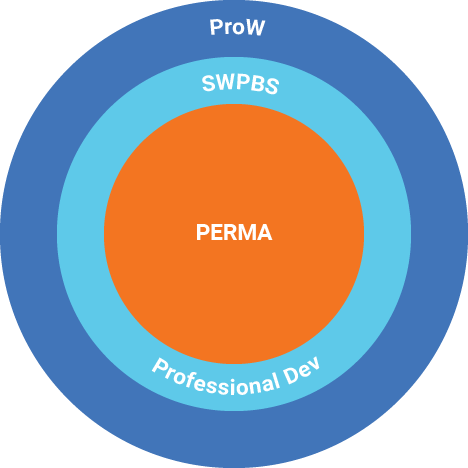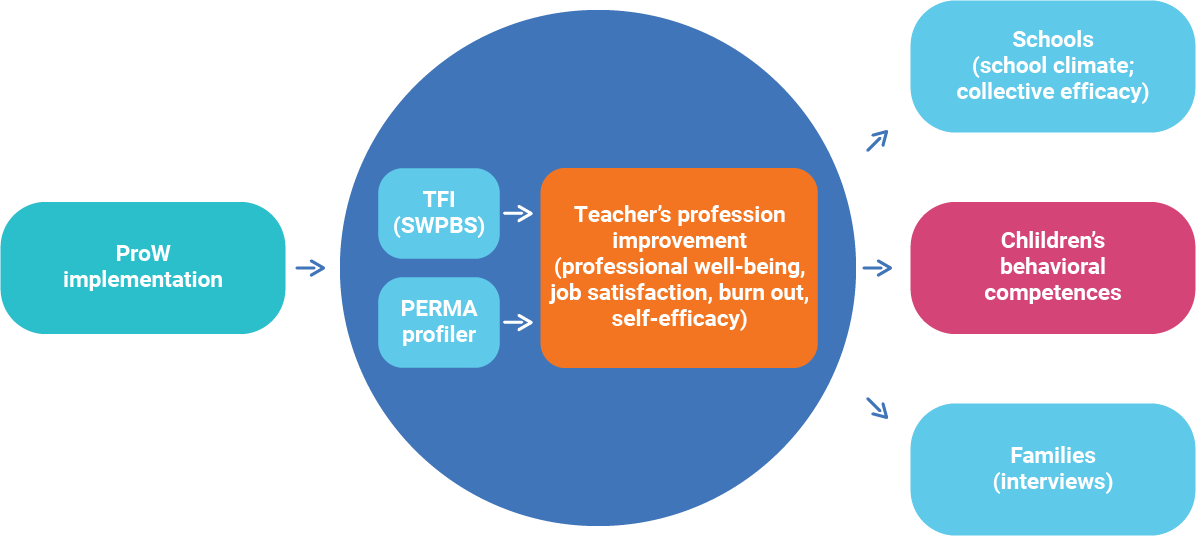- Home
- Research
Research
The ProW project is an experimental research intervention implemented in Early Childhood Education and Care (ECEC) schools, which is based on two theoretical frameworks:
- The Positive emotion, Engagement, Relationships, Meaning, and Accomplishments model – (PERMA)
- The School-Wide Positive Behaviour Support framework – (SWPBS)
Both PERMA and SWPBS are system-change frameworks that can be adapted accordingly to meet the needs of the existing educational structures of each country’s cultural context.
The early childhood educators will receive training, coaching and support on these two frameworks to improve their career, job satisfaction, wellbeing, self-efficacy, school climate, and children’s social competences.

Research Questions
Additionally, apart from improving the research knowledge on the effectiveness of Positive Education and the SWPBS framework, the project also aims to establish a teacher well-being and career observatory to promote the development of policies related to teachers’ professional development.
-
1
Does the implementation of the ProW model impact positively on early childhood teachers’ wellbeing, sense of efficacy and job satisfaction?
-
2
Does the implementation of the ProW model reduce early childhood teachers’ burnout levels?
-
3
Does the successful implementation of the ProW model impact positively on school climate?
-
4
Does the successful implementation of the ProW framework impact positively on children’s social competences?
Design of the Intervention
The project follows a randomized wait-list controlled experimental design that will engage around 60 early childhood settings, 300 early childhood teachers and 2000 children in four countries.

PERMA model
The PERMA model is based on the 5 pillars of Positive Psychology.
SWPBS framework
The ProW project focuses on the 8 key elements of the primary prevention of SWPBS and the enhancement of teachers’ professional development.
Also, SWPBS provides a systemic approach to problem behaviour, the use of data to understand issues related to problem behaviour, and the adoption of evidence based intervention practices.
SWPBS aims to:
- Prevent student problem behaviours
- Intervene effectively with evidence-based strategies when problem behaviour occurs

Common vision, philosophy and goals

Leadership

Values and expected behaviour

Teaching expected behaviour

Encouraging expected behaviour

Discourage inappropriate behaviour

Ongoing monitoring and Assessment

Tranining, development and support of school staff
Participants

60+ schools

350+ teachers

3000+ children

The European Commission’s support for the production of this publication does not constitute an endorsement of the contents which reflects the views only of the authors, and the Commission cannot be held responsible for any us which may be made of the information contained therein. [Project Number: 626146-EPP-1-2020-2-EL-EPPKA3-PI-POLICY]
Privacy Policy